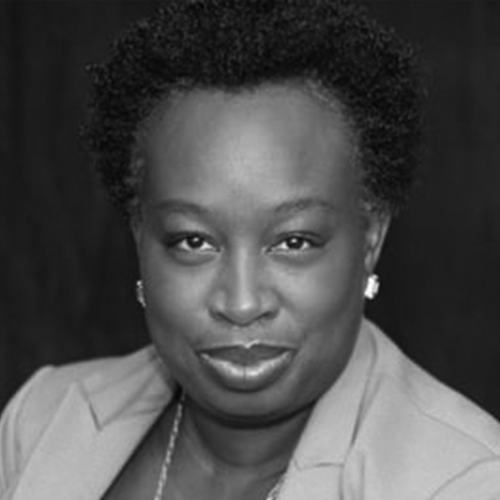So in response, some communities came together to create unique opportunities for businesswomen of color as well, like the founders of Staten Island’s Minority Women in Business Association (MWBA).

Kim Avilez
Co-Founder and President, Minority Women in Business Association of Staten Island
“The Minority Women in Business Association of Staten Island was actually formed as a direct response to what was happening as a result of the pandemic,” said Kim Avilez, MWBA co-founder and president. “It was formed by a group of small business owners, and community and nonprofit leaders who saw a lack of response to support minority women in business.”
Avilez noted that although minority women were leading in terms of numbers in the business sector, the community was struggling with a lack of access and awareness of relief capital and government contracts. Seeing organizations outside their community being awarded these contracts, the MWBA set out to bridge that gap in support.
The issues female entrepreneurs faced in accessing capital and government assistance like PPP loans during the pandemic actually reflect the same issues that women come up against even during economic boons. Avilez explained that many of these initiatives are completely self-funded, for instance, because minority women may not have the same resources or connections that more privileged demographics do, whether from outside funding from traditional banks, or simply education.
“Many of these women are the first in their families to start and own a business,” Avilez said. “So it’s not like they have a deep resource of people that they can tap into to say, ‘Well, how did you do this?’ We as an organization are filling that gap to talk about lessons that we’ve learned.”
Barriers to access
Avilez, who has 20 years of experience in the financial sector, said that without sufficient assets, it can be hard for these startups to gain access to a traditional bank loan. If you’re not a homeowner, or don’t have an investment portfolio or a high income, you may not meet a large bank’s requirements. So Avilez educates business owners on alternative sources of funding, walking people through the finer points of everything from venture capital, to SBA loans, to micro loans.
It’s not just funding where women of color tend to be shut out. Sometimes they are physically shut out from traditional networking spaces.
“There are, for lack of a better term, unintentional biases,” said Avilez, adding that this leads to marginalized people being left out of the spaces where deals are being made, whether that’s the golf course or happy hour drinks.
“It comes on two fronts,” Avilez said. “One, where you’re not in those rooms and so therefore you’re not considered in those conversations for opportunity.”
The other is when an organization’s leadership is less diverse than the communities they serve, causing them to overlook the needs of the greater population. “And so though you say we’re all invited to the table, when I walk in a room and there’s no programming that addresses my concerns or my needs, then it feels like you don’t see me,” she said.
Entrepreneurship can be isolating, and networking with peers and mentors, where you’re both seen and heard, is important in order to get ahead. “And when you walk into a space where you don’t feel like that exists, it’s just not comfortable.”
Level playing field
Avilez and MWBA are attempting to create these spaces instead.
“One of the things we attempt to do is connect women through conversations and connections,” she said. “It’s a series of conversations to create dialogue around spaces where minority women are moving, where there’s lack of representation. We use it as a catalyst for all of us to feel a little bit more courageous about our own personal endeavors, even if we’re not looking to move in that specific industry.”
While it can be more difficult for women, and especially minority women, to get a small business off the ground, it’s certainly not impossible. Two things are critical, according to Avilez: mentorship and resources. While she works to help women obtain the resources, she said you’d be surprised how many avenues there are for mentorships as well.
“The beauty of the internet is that sometimes you’re just a couple of keystrokes away from opportunity,” she said. “If you see someone that’s doing what you do and you would love to learn more, whether it’s through LinkedIn, Instagram, or another medium, message them and ask them, ‘Would you mind having a 15- or 30-minute conversation? I’m interested in learning more about what you do and I’m interested in this industry.’”
While it may seem daunting, Avilez said more often than not, people will be happy to lend a hand. “Just be prepared. Come with your questions and respect their time.”
Women of color may have historically been shut out of the old boys’ club when it comes to entrepreneurship, but now more women than ever are making new clubs of their own.

